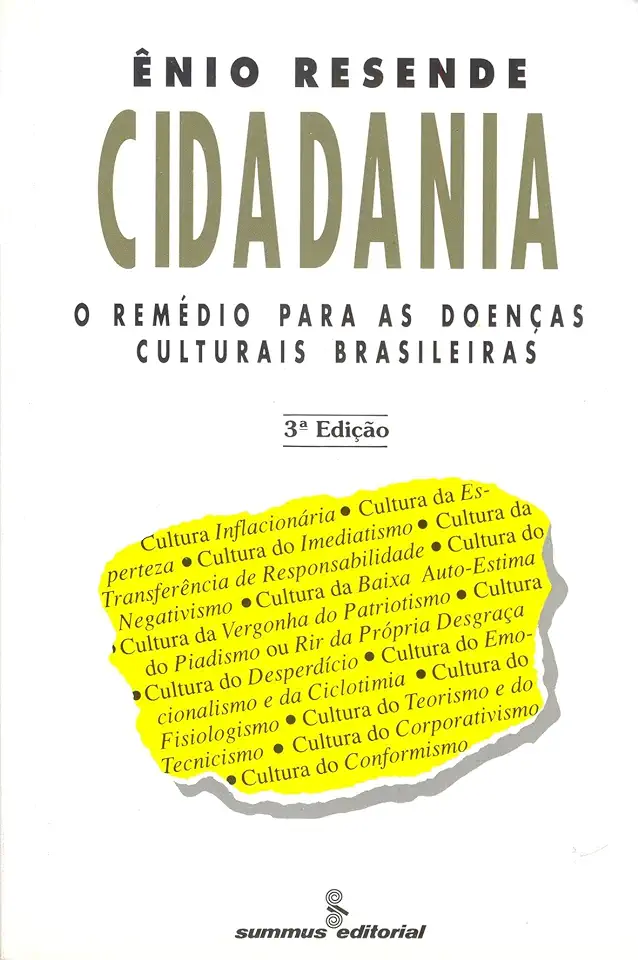
Citizenship - The Remedy for Brazilian Cultural Diseases - Enio Resende
Citizenship: The Remedy for Brazilian Cultural Diseases
Introduction
In his book "Citizenship: The Remedy for Brazilian Cultural Diseases," Enio Resende argues that Brazil's many social and economic problems are rooted in a lack of citizenship. He defines citizenship as "the exercise of rights and duties by individuals in a society," and argues that it is essential for a healthy democracy.
The Problems with Brazilian Citizenship
Resende identifies several problems with Brazilian citizenship. First, he argues that there is a lack of awareness of citizenship rights and duties among Brazilians. This is due in part to the country's history of authoritarianism, which has led to a culture of obedience and deference to authority.
Second, Resende argues that there is a lack of social cohesion in Brazil. This is due in part to the country's large size and diverse population, which makes it difficult to build a sense of national identity.
Third, Resende argues that there is a lack of political participation in Brazil. This is due in part to the country's complex political system, which makes it difficult for citizens to understand how to participate in the political process.
The Consequences of Weak Citizenship
Resende argues that the lack of citizenship in Brazil has led to a number of social and economic problems. These problems include:
- Corruption: The lack of accountability and transparency in Brazilian politics has led to widespread corruption.
- Crime: The lack of respect for the law and order has led to high levels of crime.
- Poverty: The lack of access to education and healthcare has led to widespread poverty.
- Environmental degradation: The lack of environmental awareness has led to widespread environmental degradation.
The Remedy for Brazilian Cultural Diseases
Resende argues that the only way to solve Brazil's social and economic problems is to improve citizenship. He proposes a number of reforms to achieve this, including:
- Education: Improve civics education in schools to teach Brazilians about their rights and duties as citizens.
- Media: Use the media to promote citizenship and raise awareness of social and political issues.
- Civil society: Encourage the growth of civil society organizations that can hold the government accountable and promote citizen participation.
- Political reform: Reform the political system to make it more transparent and accountable.
Conclusion
Resende concludes that citizenship is the key to solving Brazil's social and economic problems. He argues that by improving citizenship, Brazilians can build a more just and prosperous society.
Why You Should Read This Book
"Citizenship: The Remedy for Brazilian Cultural Diseases" is a must-read for anyone who wants to understand Brazil's social and economic problems. Resende's analysis is clear and concise, and his proposals for reform are well-argued and persuasive. This book is a valuable resource for anyone who wants to make a difference in Brazil.
Enjoyed the summary? Discover all the details and take your reading to the next level — [click here to view the book on Amazon!]